Talking to the two Andrews behind Room of Wires, and, in keeping with their way of working, this has all been done at distance. Room of Wires have never met—together they create uneasy electronic music.
It’s purely about the music, electronic music
Room of Wires (RoW for short), have released two full length albums, with the more recent album Plague Of People released by the highly regarded Ant-Zen out of Germany. They’ve released a number of EP’s through Section 27 net-label and more recently their first physical release—Fever Switch EP on Rednetic.
I’ve been lucky enough to attend many European gigs and festivals, where a lot of the artists on these labels have performed. Music on Ant-Zen and Hymen tends to focus on the more experimental end of modern electronic music, and tends to come from the heart for open-minded people. RoW occupy that sweet spot between industrial and intelligent dance music. You could call it IIDM, or intelligent industrial dance music. But hey, the last thing we need is another sub-genre, so let’s move on…
Igloo has been privileged to have opportunities to review a number of the RoW releases, mostly delivered by our editor in chief Pietro Da Sacco. I happily recommend giving those a read, along with my own review of the most recent Fever Switch EP. And so now on to the Q&A part of the article. Talking to the two Andrews behind Room of Wires, and, in keeping with their way of working, this has all been done at distance.
Intelligent industrial dance music ::
Igloo :: Hi guys, so you have an unusual artist profile in that you have never met in person, and choose to make music in total isolation. Seems like something a lot of people will relate to since the pandemic, but you’ve been doing it for almost ten years now. Can you tell us some more about how your collaboration came about, and whether you might meet in the future?
Andrew T :: No plans to meet, but you never know. I can imagine one day the two of us sat in a dark dingy pub sharing stories about the good times over a pint.
Andrew W :: I don’t think there’s any desire or even a need to meet, and gigs are probably out of the window.
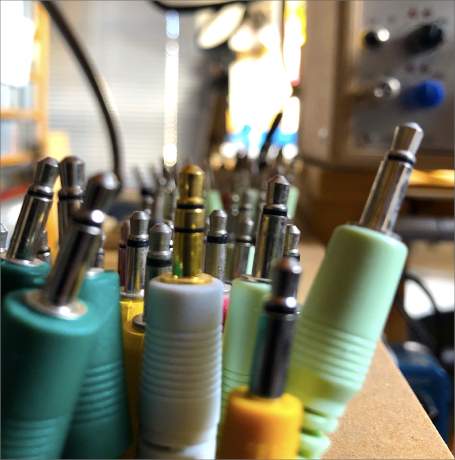
What prompted you to both start working together?
Andrew T :: We were both posting random tracks and I guess we were both doing similar things that caught each other’s eye (ears?).
Andrew W :: We exchanged a couple of emails and boom that was it. So, no relationship, just an admiration of the music. We quickly set up good working practices and it became easy to collaborate together. I’m sure most bands, if not all of them, have some sort of relationship behind them, family, friends, we don’t, it’s purely about the music, electronic music.
Room of Wires, where does the name come from?
Andrew T :: He works in a room full or physical wires and I’m constantly drowning in software and virtual wires, it just made sense.
What do you see as the benefits/drawbacks of working remotely?
Andrew T :: The main benefit is we can each do our own thing, in our own time, with no external pressure or influence. Sometimes makes you wonder what we could achieve if we were in the same room.
Andrew W :: The main benefit is time, time to do as much as we can. Drawback is we probably won’t get to play live.
But, would you ever play live together?
Andrew T :: Wouldn’t rule it out, but hard to imagine how we’d do it at this point. I keep wondering about a live performance over the internet, but not thought about the technicalities yet.
Room of Wires became known to me through your album released by Ant-Zen, how did you come to be involved with this label?
Andrew W :: We had a fair bit of interest with our first album, the self-released White Transit LP. But without doing gigs we felt the only way to get to a wider audience was to engage with different labels. We found Ant-Zen because someone posted a comment saying “Good dark stuff here! Would not be out of place on labels like Hymen or Ant-Zen either.”
So, we wrote to Ant-Zen, and Stefan Alt liked our stuff and offered to release the album, they definitely took us to a new audience. We’ll release with them again, at some point, I’m sure. We’ve been fairly productive during lockdown and shortly after the album was released we launched Fever Switch EP, through Rednetic. They are a very well-respected label and offered to do a physical release, so it felt right to go with them.
Can you share any plans you have on up coming releases for 2022?
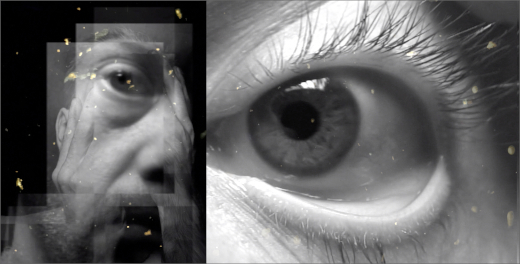
Andrew T :: The next album is well under way, so that should hopefully see the light of day in 2022.
Andrew W :: We’re collaborating with Station Zero out of the US, on an album and it’s really coming together now. Crunchier, than our current stuff, covered in feedback, we’re really excited with how it’s progressing, and Ant-Zen are going to release this mid-way through next year. We’re always creating, we both love it, and if we don’t, then we don’t do it, simple.
Going back to Ant-Zen and Rednetic, have you any other artists on those labels you particularly dig?
Andrew T :: I really like 4T Thieves on Rednetic.
Andrew W :: Currently listening to Stendeck on Hymen, and also Helm, Pharmakon, and She Spread Sorrow.
Let’s talk about the music industry a bit. This is quite an ever shifting beast. The format saga continues to rage, the vinyl resurgence, cassettes, CDs, and digital is still growing, but streaming seems to be very popular now. Which format do you tend to gravitate to for home listening? And how do you see yourself releasing new music?
Andrew T :: These days, everything for me is digital. Only get to listen to things on headphones, so just playing something on Bandcamp or Apple Music on my phone is super convenient. I do like the comeback of cassettes, although I don’t have a cassette player any more. Would love to have a vinyl release one day, just to have something that feels more “real”.
Andrew W :: Digital really. Have lots of original vinyl but haven’t even wired up my turntable it’s never used, but won’t ever sell it.
How do you see things moving in the future?
Andrew T :: Hard to see beyond streaming and independent artists using Bandcamp. My kids have access to anything they want, whenever they want through the family Apple Music subscription, but they miss out on all those hours I spent in record shops when I was younger, and sitting round a friend’s house choosing and listening to records. Shame really.
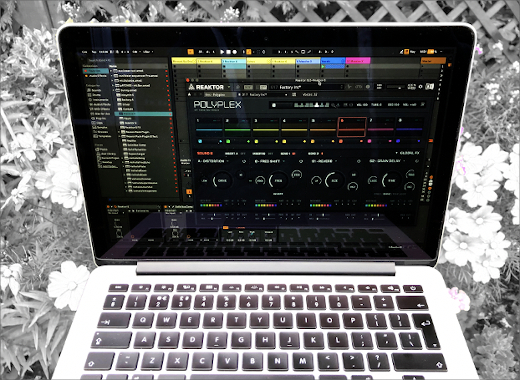
Thoughts on Bandcamp?
Andrew T :: I love Bandcamp, and the community they have created. Such an amazing platform for independent artists. It’s a far cry from having to send demo tapes to labels that get lost in a sea of other demos. Of course, it’s still hard to stand out from the crowd, but so many amazing tools available now.
Andrew W :: Bandcamp would be my first place for new stuff, it’s the only site that feels indie and has the subtle feel of a proper record shop.
Thoughts on Spotify? (note to readers, these questions were answered prior to it becoming public knowledge the Spotify owner investing in weapons and war!).
Andrew T :: I don’t use Spotify, but it feels more like an advertising platform to me than a celebration of music.
Andrew W :: Yes I do have a Spotify account, sorry, and it’s quite handy, but nothing more than that.
How did/do you discover music?
Andrew T :: Usually from the Bandcamp community, and what the artists I follow recommend on Twitter. We have a channel on our Slack server for sharing links, there’s enough on there to keep you going for years.
Can you tell us something about your musical history as fans, early or favorite artists?
Andrew T :: In my teens I was obsessed with The Jesus and Mary Chain, until Selected Ambient Works Volume 1 (Aphex Twin) and the Artificial Intelligence (Warp) compilation blew my mind.
Andrew W :: Early industrial/experimental stuff: SPK, 23 Skidoo, Eyeless in Gaza, Cabaret Voltaire, Severed Heads to name just a few.
Which artists stood the test of time?
Andrew T :: To me, Autechre are timeless, they always sound like the future, even the stuff that’s 20 years old.
Andrew W :: Joy Division have really stood the test of time.
Were you formally educated in music?
Andrew T :: No, I taught myself to play the guitar (i.e. turn all the knobs way up and stand too close to the amp) and got a Tascam Portastudio. Then I got an Amiga A500 and some software called Music-X, and started to work out how to do electronic music production. Built a home made MIDI to CV converter and got a Roland SH-101 and a Korg MS-10.
Andrew W :: No music education either, started tinkering with tape loops and a Casio VL Tone and it grew from there.
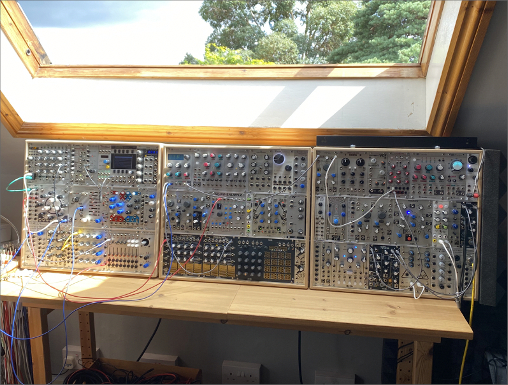
Favorite piece of gear? Hardware or software?
Andrew T :: Probably my MacBook, it has everything on it I need and I can use it anywhere. Software-wise, I love my Valhalla plugins, and generative sequencers like the ones in Reaktor or the Reason players. I’m the software guy.
Andrew W :: Favorite gear is a tricky one, my Access Virus TI is a treasure (but do I use it?) and more recently my Sequential Pro3 is excellent. But really, I’d have to say my Mac Trashcan and Logic are the ones that are always on. And of course my modular, you can have bad days with it, but it just takes you somewhere new every time.
Production techniques, or ways of working. What is your process without necessarily revealing all of the magic behind the curtain?
Andrew T :: I’m from the “happy accident” school of music making, I just fiddle with things until something cool jumps out, and then that usually inspires me to run with it. The trick is to know what sounds good, and what goes together.
Andrew W :: We do have quite an ordered way of working. We each know our roles and this helps the process remotely. But if something’s not working, we don’t force it, we bin it and move on.
What came first the beat or the melody? And is do you tend to create melodies and sounds first, or the rhythmic elements?
Andrew T :: It varies, although I don’t really do melodies! Just create sounds that are interesting to me and go from there.
Andrew W :: Samples, loops, beats, ‘starters’ as we call them, come from either one of us and then get developed out into full tracks. I’m always listening out for interesting audio, atmospheres, conversations, ‘Train Jacker’ was a very apt title back in the early days. The field recordings do play an important part, they can be almost inaudible but they’re definitely there.
So good news is that points wise it is neck & neck here… so let’s wrap up this quiz with a final quick fire round to give people a better idea of the people behind the music, aside from the stuff already asked!
Favorite recording artists/composers? Of all time or more recently?
Andrew T :: Of all time, Autechre. More recently, Lorn, Burial, Rival Consoles and Hainbach.
Gigs!?
Andrew W :: I saw Test Dept in a disused train depot in Paddington, Aphex in the Clink Prison, and went to see Eyeless in Gaza and came away spellbound by Raime.
Movies!?
Andrew T :: Favorite movie, Star Wars Episode IV, last movie watched, The Suicide Squad.
Andrew W :: Bit of a cliché, but it has to be Apocalypse Now. The last movie I watched was Nomadland.
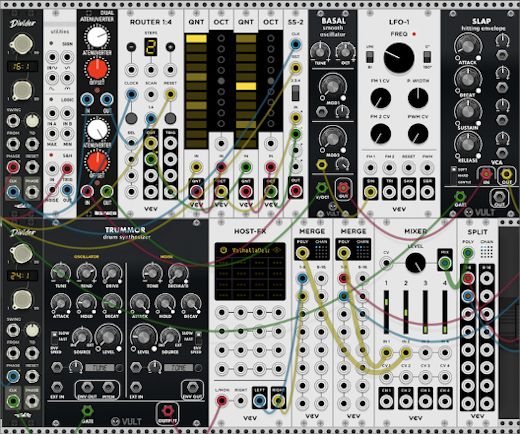
Favorite soundtrack?
Andrew W :: Honestly… War of the Worlds.
Last TV show you binged?
Andrew T :: The Mandalorian. Lost is the best TV show ever.
Authors or books you love?
Andrew T :: Jules Verne, Ursula Le Guin, Philip Pullman, Alan Garner
Thank you both so much for taking the time to share all this interesting information about yourselves, your music, and your ways of working.
I think we all got quite an insight into the lives and minds of the two Andrews, from two places, who share one voice—Room of Wires. We’re very much looking forward to what the future holds for this project, and are waiting for the next releases with anticipation.
Fever Switch is available on Rednetic. Plague of People is available on Ant-Zen.






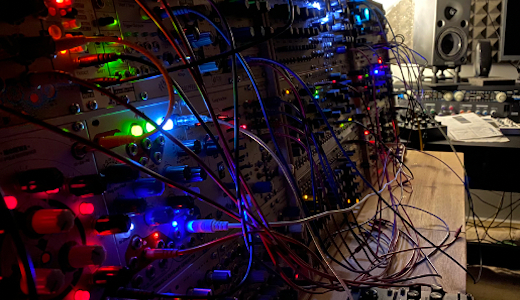




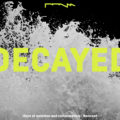
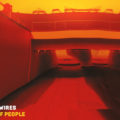
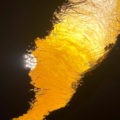
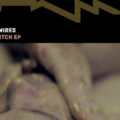
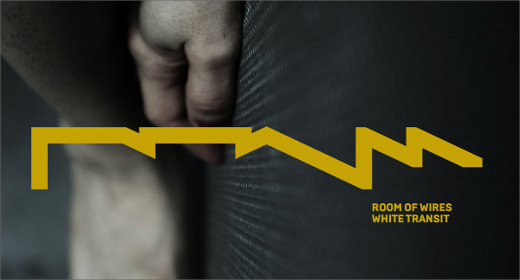







![Allmanna Town :: 1911 EP (Self Released) — [concise]](https://igloomag.com/wp/wp-content/uploads/2025/03/allmannatown-1911_feat2-75x75.jpg)


